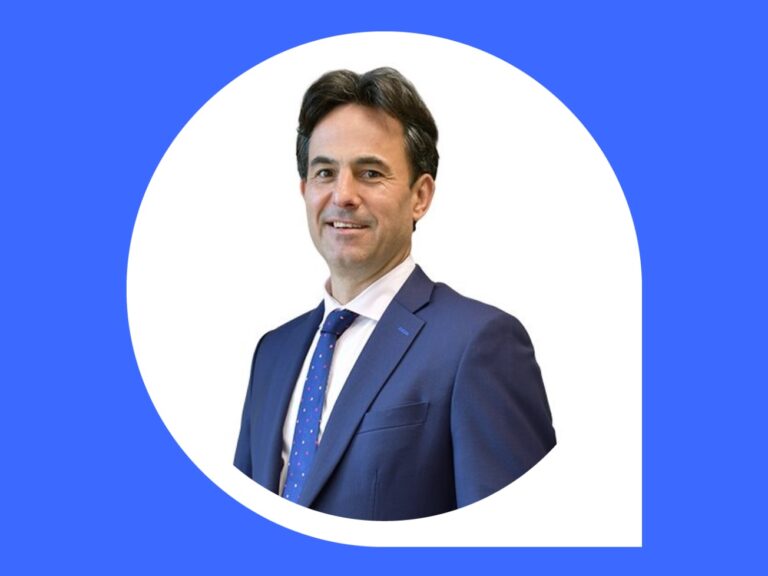I am an Actuary – November 2018
The study and career of an actuarial student can twist and turn in many different directions and bring endless opportunities to work abroad and in versatile industries. Discover where the profession has already taken six recently qualified actuaries.
Yankai Wang
Unlike most of my peers who have an actuarial degree, I come from a rather “non-traditional” background. I attended The University of Sydney in 2013 and finished with a bachelor’s degree in Economics, majoring in Econometrics and Finance. Frankly, I had not heard of the profession until I spoke to my old mentor at the graduation ceremony, whose wife happened to be a qualified actuary.
“The fascinating career path and urge to use my econometric knowledge have, since then, led me onto the long road to becoming an Actuary – passing all of the exams starting from CT 1.”
Following graduation, I joined PwC Australia and have focused on the banking and capital markets practice. I have been heavily involved in credit risk modelling and validation, capital modelling and assessment, and actuarial audit support engagements. I have had the pleasure to work with many talented individuals from a variety of lines of work.
Their insights have helped me to become a well-rounded person with a more comprehensive skillset, in addition to the solid technical capabilities that an actuary is commonly known for.
Outside of work, I’m an amateur boxer.
“Interestingly enough, following the path to becoming an actuary, including passing all my exams, is rather similar to fighting in a ring – keep your eyes on the prize and don’t waver, no matter what.”
Being a qualified actuary is not simply a golden stamp on your technical skills, it is a testimony of one’s tenacity and resilience which will be valuable in meeting the challenges ahead.
Josh Martin
I discovered at a pretty young age that I enjoyed patterns and numbers. I was the weird kid that needed all Lego designs to be symmetrical or finger painting to be folded in half to produce that soothing symmetry. The 6-year-old Josh was obviously a badass. Nowadays identifying trends in valuation data and assumption setting is part of my role at KPMG.
I first heard the word ‘actuary’ through a careers advisor at school. I’d studied an accounting course at TAFE during year 11, thinking that would be my career, but foolish me sought a greater test of my numerical prowess and the years of battering one’s self for the sake of a qualification began.
At the end of my second year of university I was fortunate enough to do a week’s work experience in the general insurance team at KPMG and be exposed to the world of asbestos compensation. The work was enthralling, vindicating my choice of profession and providing a connection to decisions that impacted the lives of those affected and their loved ones.
“Going forward I hope to do more work like this, so the weird pattern-obsessed 6-year-old kid can be proud of what he achieved in his career.”
Outside of work I spend my time either playing sports and computer games or watching sports and computer games. I’m working my way up to my first marathon after completing City2Surf the last few years and my first half marathon this year. Hopefully I can tick off that milestone in the next 12 months.
Luke Heinrich
In 2010 I turned up to ANU open day with a bit of maths under my belt and no idea what to study. I had a few friends doing engineering, but I hadn’t done physics, so simply following them was off the cards. I attended the actuarial session and it seemed like pretty interesting stuff with a promise of great job opportunities, so I went home to explain to Mum that I’d decided to study something that neither of us had heard of just a few hours earlier.
I wasn’t too purposeful during my degree but was lucky enough to land a role at Quantium where I turned up on day one without much idea of what I’d be doing. I ended up learning my craft in retail analytics working with great people and developing a strong network. It was through that network that I made the move to Atlassian last year to do all-things “analytics” in the software space.
Although I work as part of an actuarial team of zero (hopefully to become one soon!) I came back to finish my study this year having learnt the value of the profession, despite never having worked in a traditional field.
My main reflection is that when I look back at my life, if I had ever tried to predict where I’d be in three years I’d have been way off.
“Instead my study and career has pivoted in ways I’d never have expected and that’s okay – I actually enjoy it, and I now focus on looking at my career as a short-term asset rather than a long-term liability.”
I’m definitely not going to try and predict where I’ll land in 2021, only that I’m sure I’ll be excited by it.
Andrew Yin
“What does it mean to be an actuary?”
In fact, like some other people, I had no idea what I was getting into. After one year’s study of Electrical Engineering, I made up my mind to try something else overseas. After missing the “ticket” (admission deadlines) to the University of Waterloo, I was lucky to be accepted in Australia. What about the degree? All I remember now from my conversation with my father is: “challenging”, “math”, “math” and “math”. Yep, even my closest mentor had the same misconception of the career at that time.
During the last semester in ANU, I joined TAL as a casual and that is the first time that I heard about the concept “actuarial/data science hybrid”.
Actuaries and data scientists sometimes don’t quite agree with each other on the approach to a problem, but most of the time, they can achieve greater things when they work together.
Actuaries can use their domain knowledge to help discover/select (new) covariates, while data scientists can propose new methodology and leverage big data. Now, just imagine someone who understands and speaks in both languages, how powerful she/he would be?
My thinking of the actuarial profession doesn’t stop there. No matter what work we do, it ultimately transforms into business decisions. And what’s above business decisions? Strategy. “An Actuary is not just another well-regarded technician.” The reason for saying that is not only because of the professionalism and ethics, but also because we should anticipate, execute and influence business decisions. And that’s how we create value to society.
Lydia Jost
I can’t say that I was someone who knew early in life what I wanted to do with it later. I definitely wouldn’t have thought 10 years ago that I would end up working on the other side of the world from where I grew up in Germany.
Thanks to my inspiring maths teacher during my exchange student year in Denmark, it eventually became clear to me that I would want to do something with mathematics. My amazing exchange experience also fostered my curiosity for the world and other cultures. I realised that I wanted a career that would give me opportunities to work internationally.
“My first opportunity came by working for Hannover Re in the head office actuarial valuation and modelling department, which offered me the chance to work with the group’s subsidiaries and branches all around the globe.”
This provided me with the challenges and rewards that come with working for an international company and gave me practical insights into the diverse actuarial world.
Working as an actuary can be as diverse and challenging as one wants it to be. I always try my best to adhere to the mantra “embrace and grow with your challenges”. I achieved this firstly by obtaining my certification as a German Actuary and then using the network that I had established through my work to secure my international secondment to Australia.
Working overseas has been one of those awesome opportunities and challenges that the profession can provide and that I value highly. As they say – “the world is your oyster” – and I intend to keep on exploring it.
Sunny Dhillon
My career, thus far, has mostly been in non-traditional actuarial areas. I started at ANZ in 2014 as an Intern in the Chief Investment Office. I then moved into the ANZ Graduate Program and worked across various teams in Life Insurance, General Insurance, and Wealth Risk within the ANZ Wealth Division. Post completion of my Graduate Program, I moved into Retail Credit Risk where I worked in Acquisitions and Portfolio Risk Management. The Retail Risk products include Personal Loans, Credit Cards, Home Loans and Overdrafts. I was responsible for building, testing and implementing Credit Risk strategies, and developing predictive model analytics and insights.
I am currently working in Global Markets Finance within ANZ Bank. In this role, I am responsible for analytics and reporting to various stakeholders, monitoring performance and identifying opportunities for process improvement through automation. Functional areas within Global Markets include Financial Sales, Risk Management & Trading, and Balance Sheet Management. These areas involve the following products – Foreign Exchange, Rates, Credit and Commodities – all of which are very exciting!
It is sad to see that throughout my career in the “non-traditional” areas mentioned above I haven’t come across many ‘actuaries’.
“I believe the actuarial qualifications are relevant to various applications, in many different ways. There are numerous opportunities, in such areas, for actuaries to further enhance their skills to be strong candidates for leadership roles.”
Having now completed the qualifications to be called an ‘Actuary’, I aim to complete requirements to receive the Chartered Enterprise Risk Actuary title. I believe that the CERA qualification, along with my experience, will position me well for my future aspirations.
CPD: Actuaries Institute Members can claim two CPD points for every hour of reading articles on Actuaries Digital.






